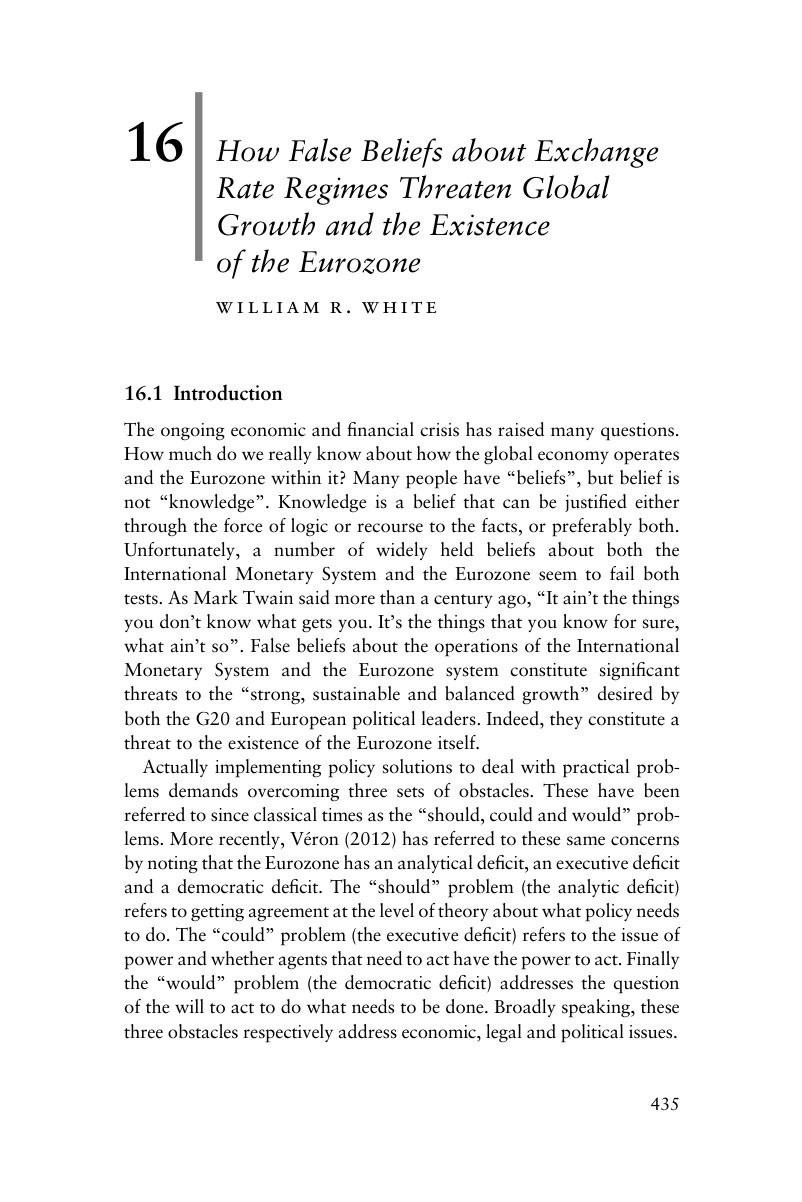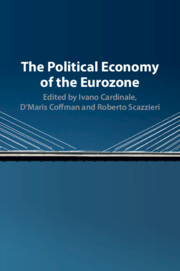Book contents
- The Political Economy of the Eurozone
- The Political Economy of the Eurozone
- Copyright page
- Contents
- Figures
- Tables
- Contributors
- Preface
- Acknowledgements
- 1 The Eurozone as a Political Economy Field
- Part I Comparative Historical and Institutional Perspectives
- Part II Multi-Level Interdependencies
- Part III Political Economy of Structural Governance
- 10 German Economic Models, Transnationalization and European Imbalances
- 11 Exploring Sectoral Conflicts of Interest in the Eurozone
- 12 The Impact of the Economic Crisis on European Manufacturing
- 13 Fiscal Systems and Fiscal Union
- 14 China’s Investment in the Eurozone
- 15 Eurobonds for EMU Stability and Structural Growth
- 16 How False Beliefs about Exchange Rate Regimes Threaten Global Growth and the Existence of the Eurozone
- Part IV Framing the Eurozone
- Index1
- Book part
- References
16 - How False Beliefs about Exchange Rate Regimes Threaten Global Growth and the Existence of the Eurozone
from Part III - Political Economy of Structural Governance
Published online by Cambridge University Press: 31 October 2017
- The Political Economy of the Eurozone
- The Political Economy of the Eurozone
- Copyright page
- Contents
- Figures
- Tables
- Contributors
- Preface
- Acknowledgements
- 1 The Eurozone as a Political Economy Field
- Part I Comparative Historical and Institutional Perspectives
- Part II Multi-Level Interdependencies
- Part III Political Economy of Structural Governance
- 10 German Economic Models, Transnationalization and European Imbalances
- 11 Exploring Sectoral Conflicts of Interest in the Eurozone
- 12 The Impact of the Economic Crisis on European Manufacturing
- 13 Fiscal Systems and Fiscal Union
- 14 China’s Investment in the Eurozone
- 15 Eurobonds for EMU Stability and Structural Growth
- 16 How False Beliefs about Exchange Rate Regimes Threaten Global Growth and the Existence of the Eurozone
- Part IV Framing the Eurozone
- Index1
- Book part
- References
Summary

- Type
- Chapter
- Information
- The Political Economy of the Eurozone , pp. 435 - 480Publisher: Cambridge University PressPrint publication year: 2017



